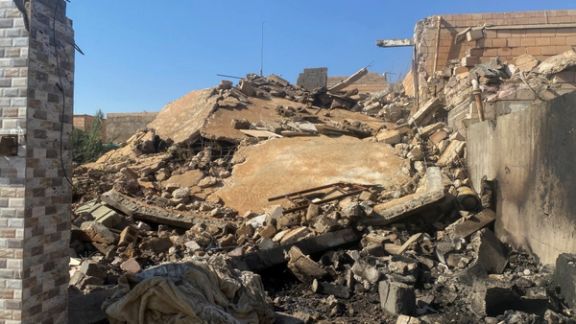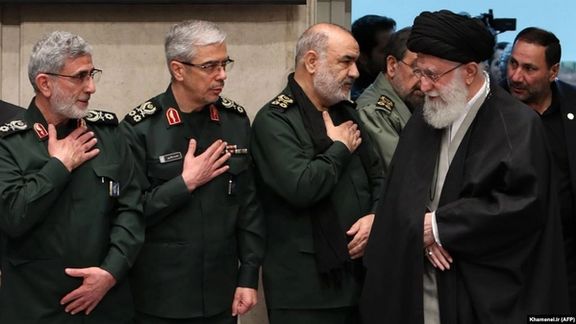Iran Convinced Proxies In Iraq To Stop Attacks, Report Claims

A report by Reuters states that the commander of Iran’s Quds Force, Esmail Qaani, traveled to Iraq in late January to convince allied militants to suspend attacks on US forces.

A report by Reuters states that the commander of Iran’s Quds Force, Esmail Qaani, traveled to Iraq in late January to convince allied militants to suspend attacks on US forces.
Qaani met with representatives of several Iran-backed groups in Baghdad airport on January 29, one day after a drone launched by the same groups killed three American soldiers at an outpost near the Syria-Jordanian border. The report quotes Iranian and Iraqi militia sources.
Qaani told the militias they should lie low, to avoid US strikes on their senior commanders, destruction of key infrastructure or even a direct retaliation against Iran, the sources said. Iran was also concerned about direct US retaliation against its own military, within the country or in the region, such as Iranian warships lurking near Yemen.
While one faction did not initially agree to Qaani's request, most others did. The next day, elite Iran-backed group Kataib Hezbollah announced it was suspending attacks.
Since February 4 there have been no attacks on US forces in Iraq and Syria, compared to more than 20 in the two weeks before Qaani's visit, part of a surge in violence from the groups in opposition to Israel's war in Gaza.
If this version of events is true, it could explain why Washington hesitated six days before launching military retaliation at bases under the overall command of the Quds Force in Syria and Iraq. During this crucial period, according to reports, many key IRGC and militant personnel vacated bases believed to be likely targets of an American retaliatory strike. Many observers at the time criticized the Biden administration for the delay, while the US has large naval forces in the region ready for action since war broke out between Israel and Hamas.

However, Qaani’s alleged role in convincing Iran’s proxies in Iraq to suspend attacks, clearly did not extend to Houthis in Yemen, who have continued targeting commercial shipping and even Western navies in the Red Sea region. If Qaani’s argument about the cost of US retaliation dissuaded the militants, no such change of heart has occurred among the Houthi leadership who have come under air strikes but remain adamant to continue attacks against shipping.
Iran’s proxies in Iraq have been used for years as a means of pressure on the United States, with periods of aggression and relative calm, depending on factors such as secret talks or nuclear negotiations with Iran. These attacks intensified in 2019, when the Trump administration implemented “maximum pressure” sanction against Tehran. As militant activity reached a peak in December 2019, Trump ordered the targeted killing of Qasem Soleimani, Iran’s top Middle East military and intelligence operative who had made the Quds Force and its proxy militias into a serious force across the region.
The Iranian regime, meanwhile, has spearheaded a campaign to push the small US military presence out of Syria and Iraq. Its proxy forces use the issue to justify attacks, although their recent attacks have been in support of Hamas.
The Reuters report also argues that the tense situation prevailing up until early February played into the hands of the Iraqi government, which initiated a new push to end the US military presence in the country, which is used by pro-Iran groups to create tensions.
With Iran bracing for a U.S. response to the Jordan attack, Qaani made the visit quick and did not leave the airport, "for strict security reasons and fearing for his safety," the senior Iraqi security source said.
The strike in 2020 that killed former Quds Force leader Qassem Soleimani outside the airport followed an attack Washington also blamed on Kataib Hezbollah that killed a U.S. contractor, and at the time sparked fears of a regional war. Along with Soleimani, the drone killed former Kataib Hezbollah leader Abu Mahdi al-Muhandis.
Both Tehran and Baghdad wanted to avoid a similar escalation this time round, nine sources told Reuters. "The Iranians learned their lesson from the liquidation of Soleimani and did not want this to be repeated," a senior Iraqi security source said.